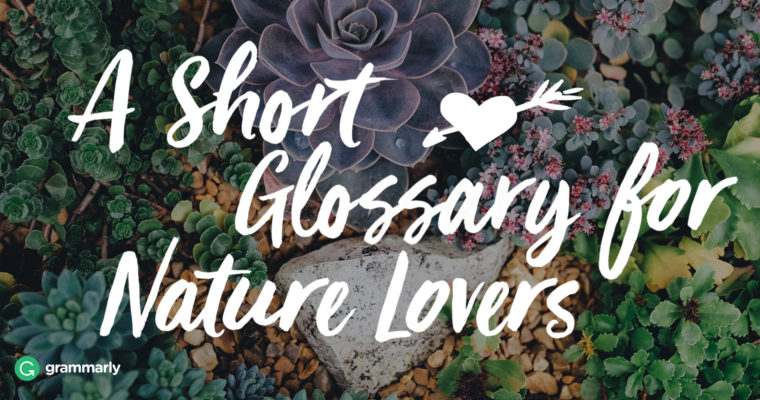
What beautiful things surround you? From regal snowcapped mountain ranges or transparent aquamarine ocean waters, the beauties that nature offers delight people around the globe. When you love something, you want to talk about it. Sometimes there are no words, but sometimes there’s a perfect expression to capture the awesomeness of natural sights. Here are the eight words that every nature lover should know.
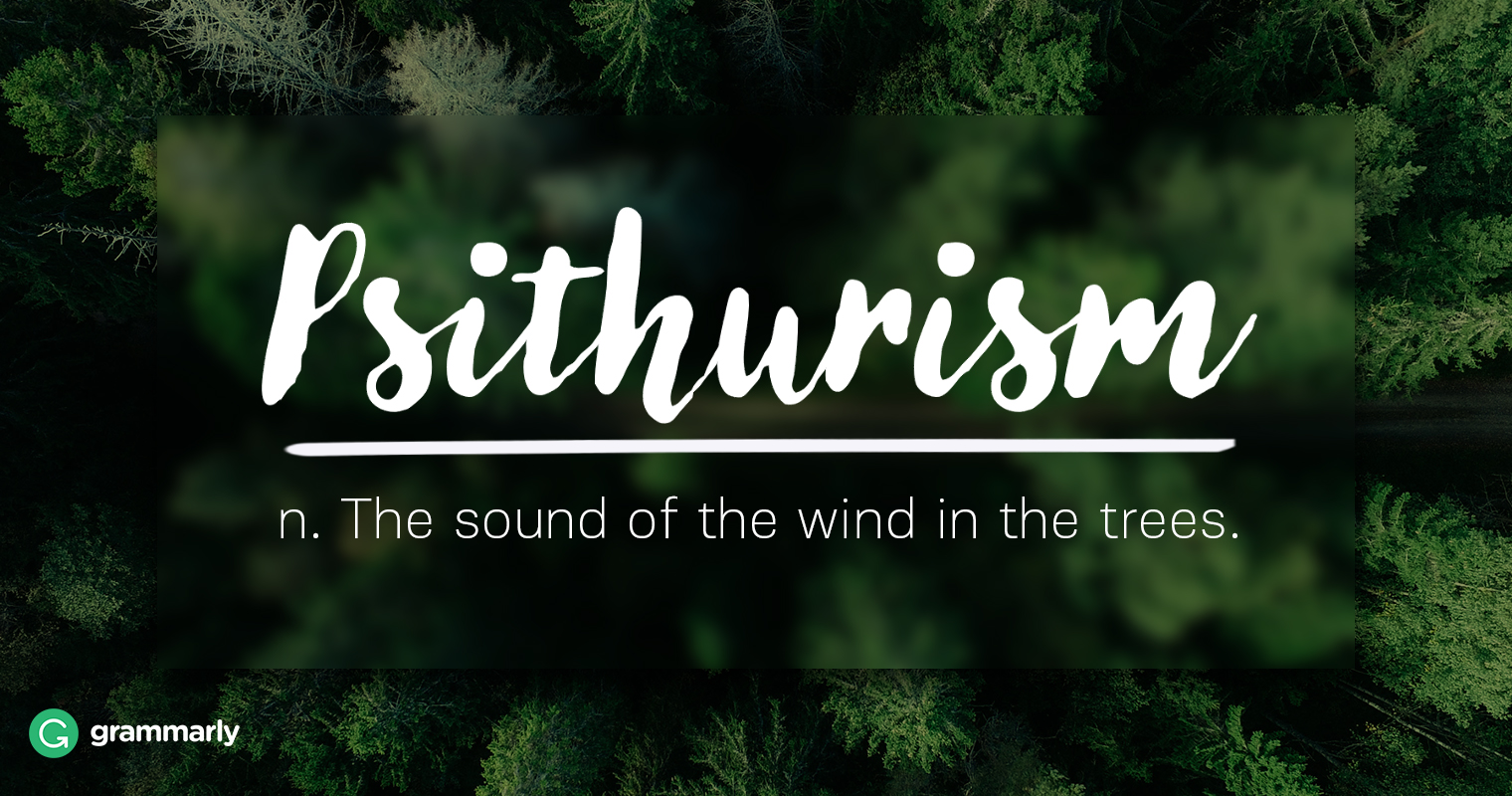
Psithurism
Who says trees don’t talk? When the wind rustles the leaves, the trees seem to be whispering the secrets of the universe. Psithurism, the sound of the wind in the trees, is an obsolete word derived from the Greek word for whispering.
Smultronställe
In Swedish, a smultronställe is a small, remote place where wild strawberries grow. Imagine a pretty place in the wilderness, a special, hidden place where you can relax and enjoy the smell of fresh berries ripening in the sun. Swedes also use this word to talk about “rare moments of peaceful tranquility.”
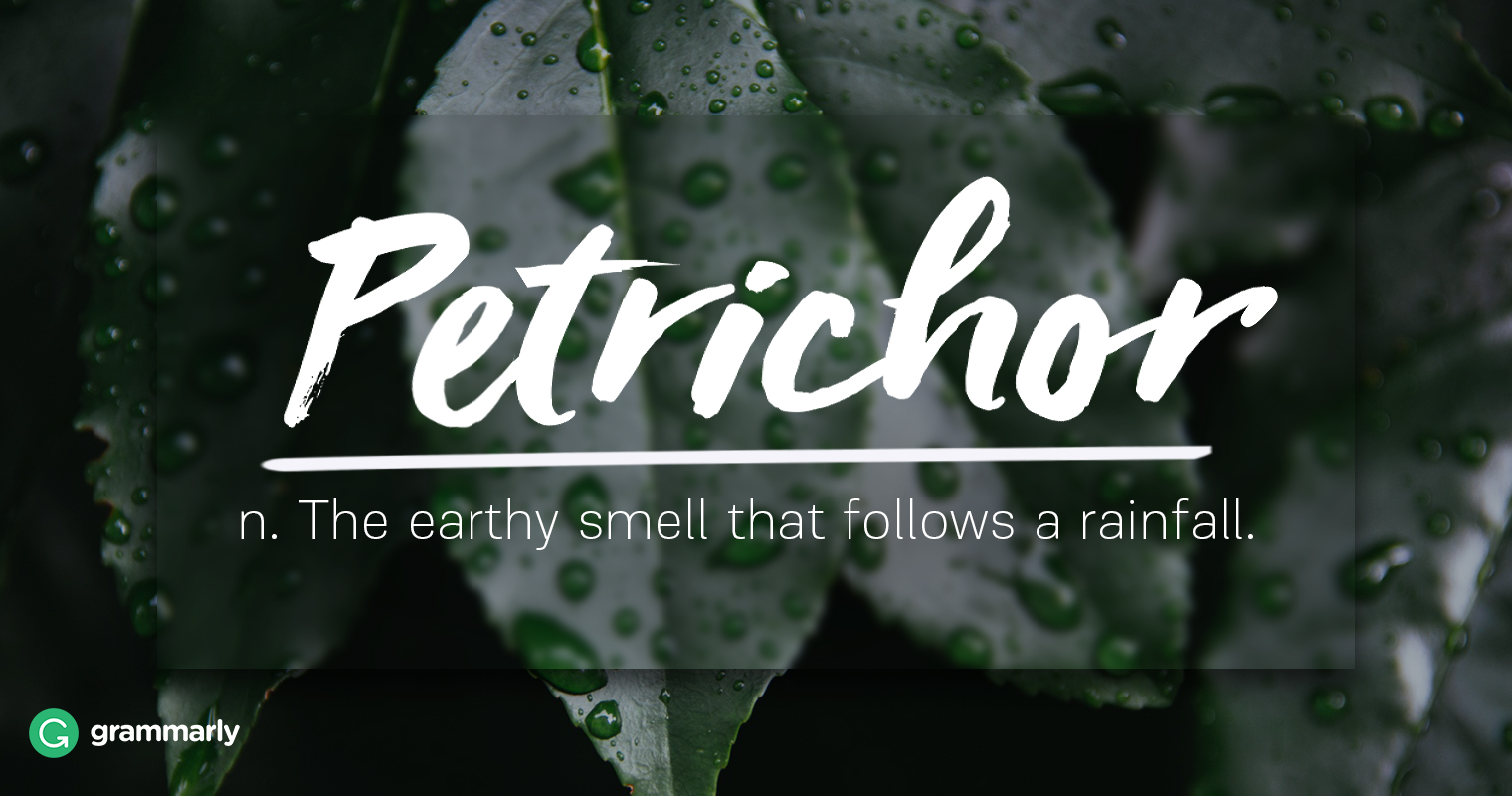
Petrichor
Do you revel in the earthy smell that follows a rainfall? Especially after the weather has been warm and dry, the earth releases a pleasant smell that some people love. The word’s origins are Greek, derived from combining the Greek word for stone and ichor, the blood of mythological gods. Here’s a quote from Somewhere Only We Know by Alexander Thian: “That’s petrichor. It’s the most comforting scent. When the rain meets the Earth, memories rise. . .”
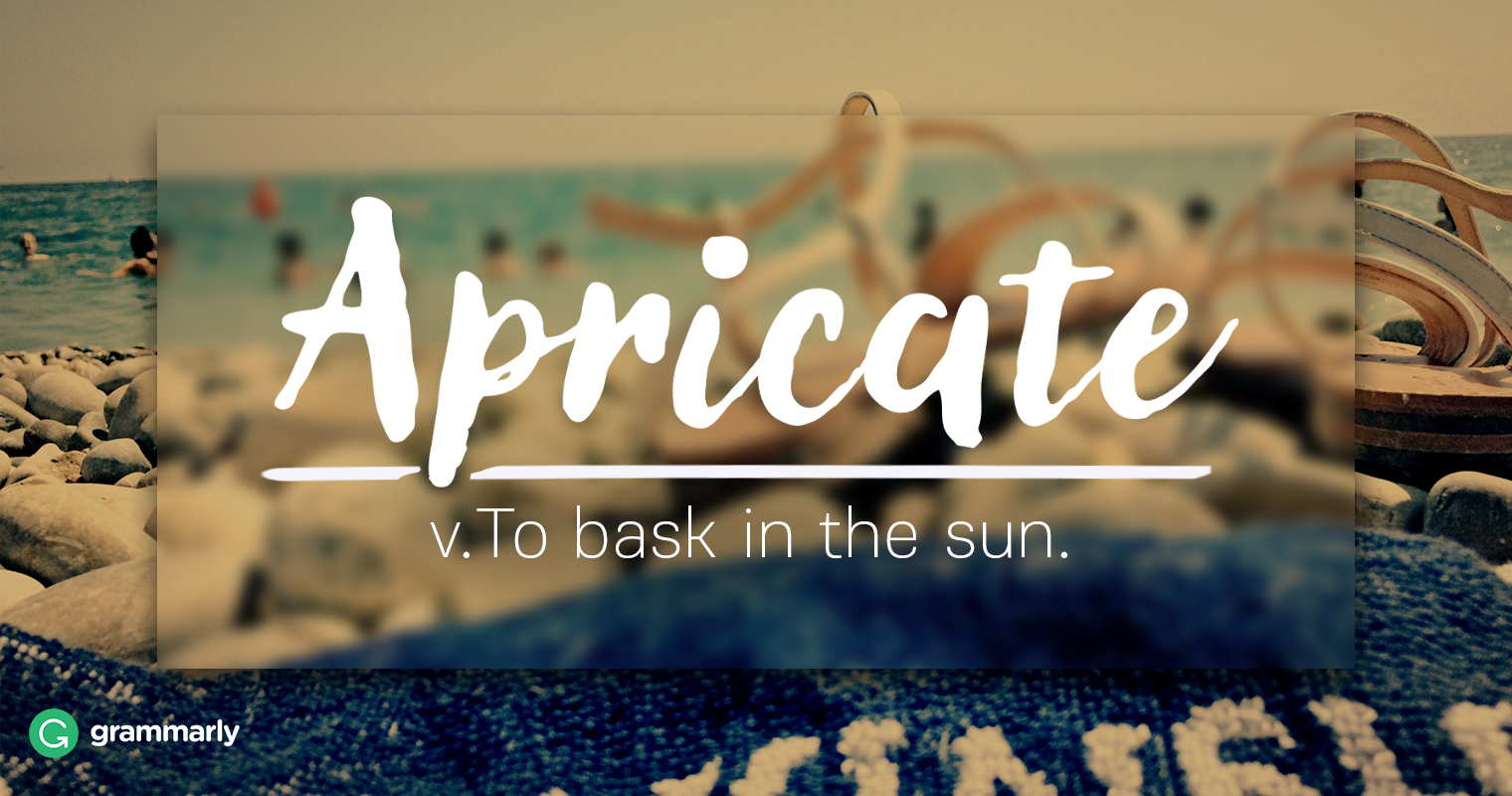
Apricate
If your favorite thing to do on vacation is tan, you might spend a lot of time apricating. Apricate is a verb that English inherited from Latin, and it means to bask in the sun.
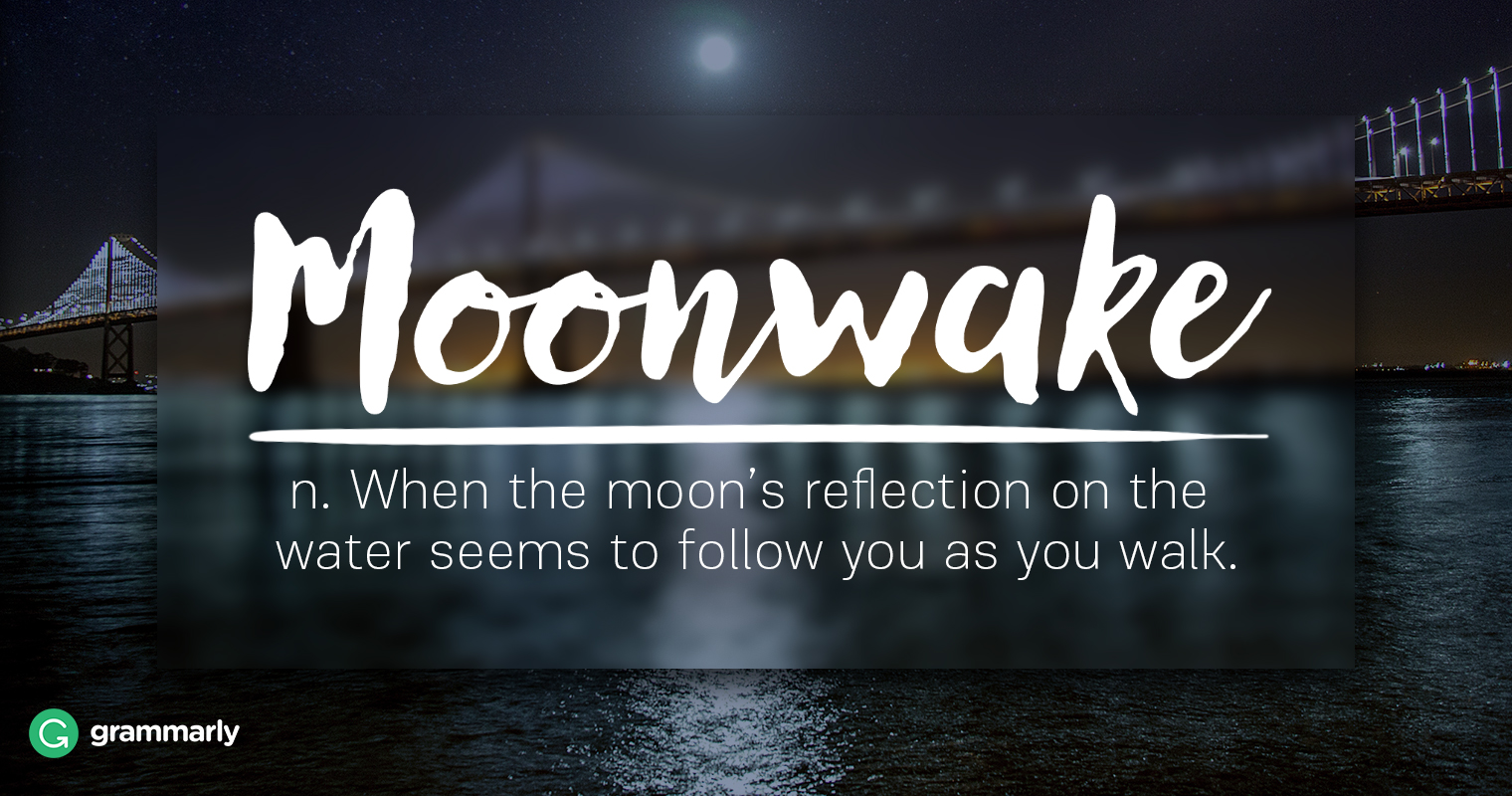
Moonglade and Moonwake
You might see moonglade in the lines of poems such as this one by Edgar Rice Burroughs, “Heaven was full of silent stars, and there was a moonglade on the water that stretched almost from him to Rose.” While a moonglade is a flash of moonlight reflecting on water, its synonym moonwake is a great word to describe how the moon’s reflection on the water seems to follow you as you walk along the shore.
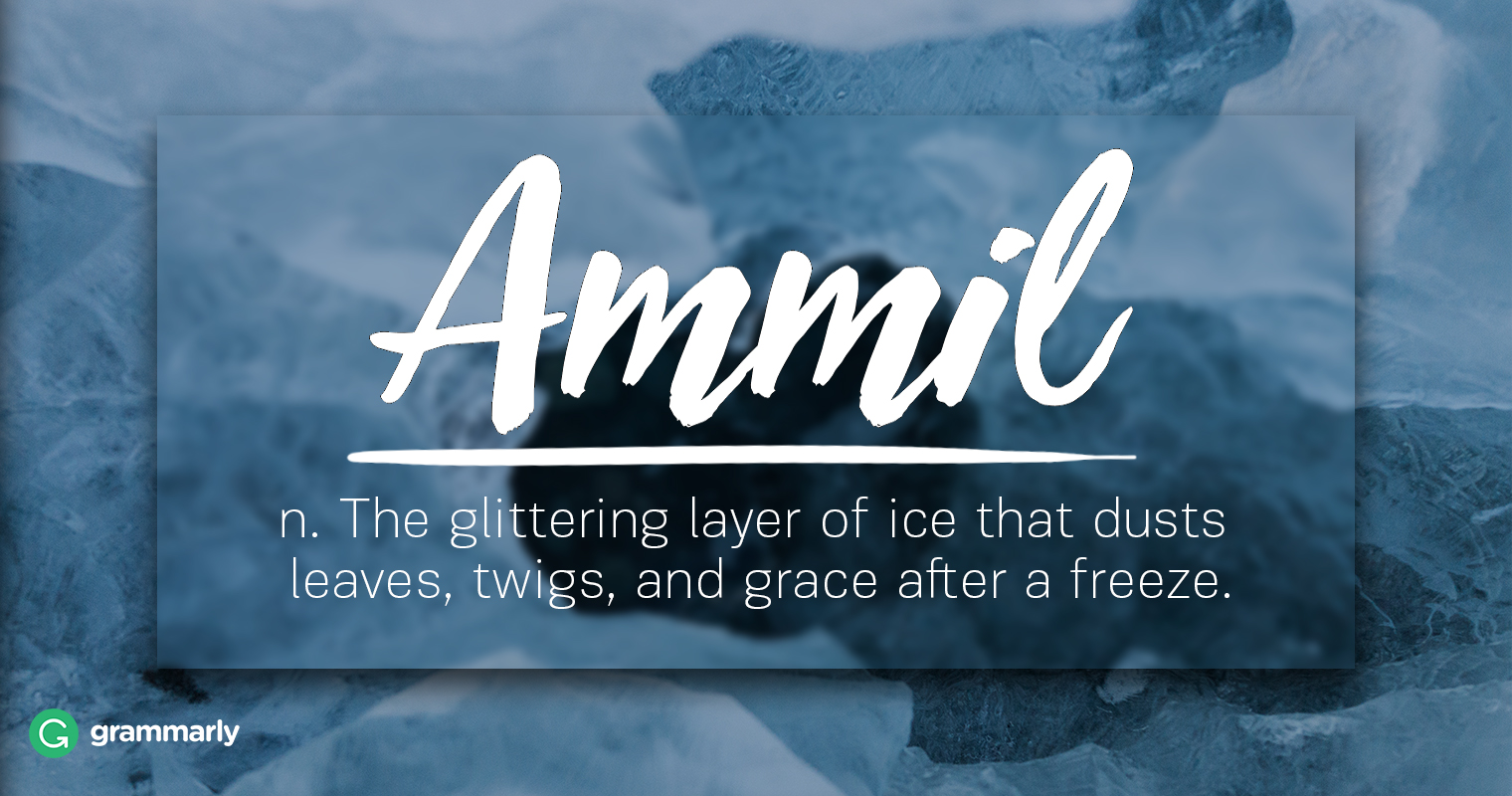
Ammil
Carolers sing about winter wonderlands; now you can describe them more accurately with ammil. Ammil comes from the Old English term for enamel. Now the word refers to the glittering layer of ice that dusts leaves, twigs, and grass after a freeze.
Yugen
Do you enjoy nature? You might not find a sufficient way to express how much you do. Yugen is the eighth word of this list and a perfect word to conclude an article on the wonders of creation. Sometimes nature is indescribable. The Japanese word yugen refers to the awareness that the universe is so profound that the emotions we feel when we try to contemplate it are too deep and mysterious to convey. At least you have these eight words if you decide to try!
![]()






